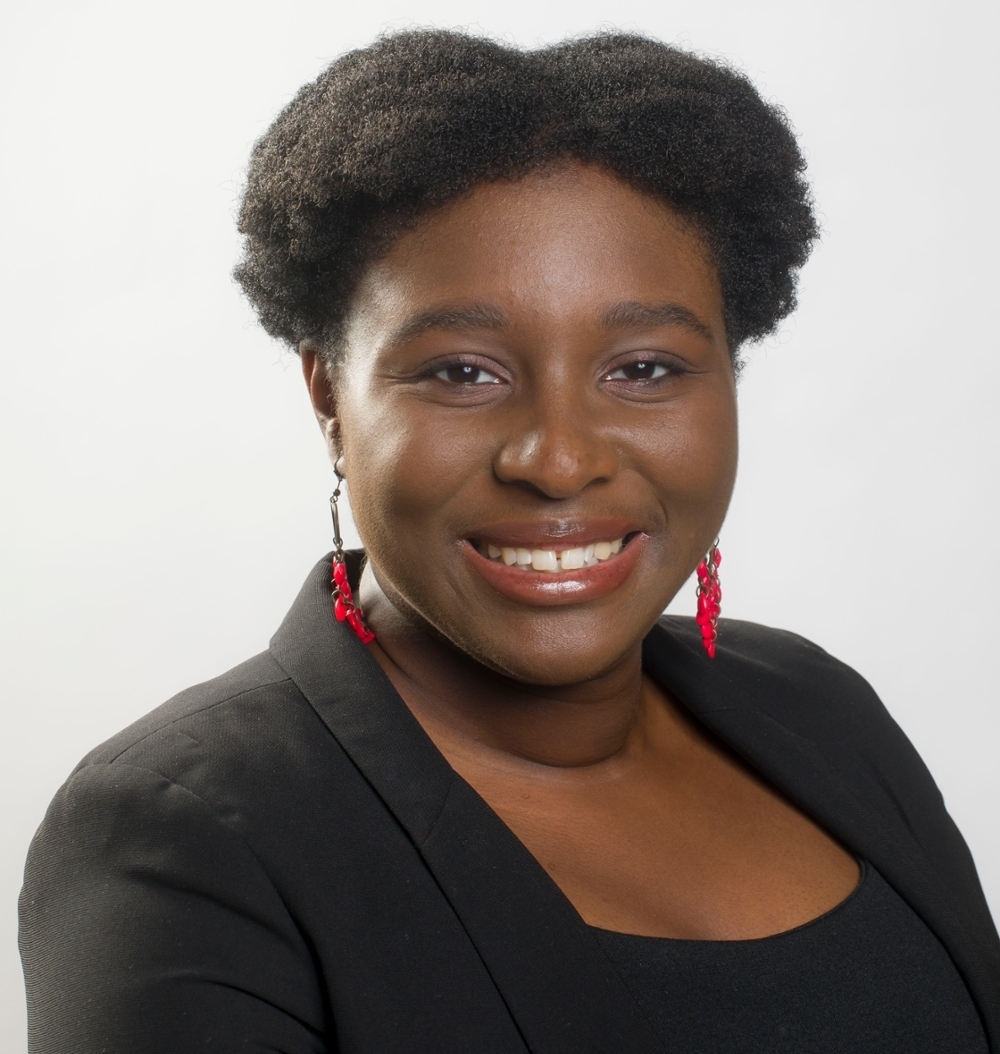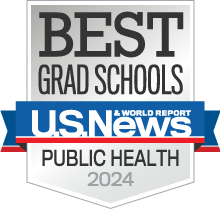Ekomobong Eyoh, MPH candidate, Presents Capstone Project at the LEND's Grand Rounds

As part of their experience in Department of Public Health Sciences’ Master of Public Health (MPH) program, students are required to complete a capstone field experience, as well as a capstone project on a topic of their choice. The University of Miami Miller School of Medicine also offers the Leadership Development in Neurodevelopmental Disabilities (LEND) program, which gives students the opportunity to apply their clinical knowledge and skills to populations with related disabilities. To enhance their experience, graduate and post-graduate students in the program are required to develop a LEND Advocacy Project.
Ekomobong Eyoh, a second-year MPH candidate and a graduate assistant at the Department of Public Health Sciences, who is also involved in the LEND program, focused her capstone and LEND Advocacy Project on increasing social support for siblings of children with special health care needs. Eyoh, who recently presented her project during LEND’s Grand Rounds, resonates with the topic on a personal level.
“I am a sibling of a young adult with autism. Growing up, there were a lot of things that I didn’t know. A lot of situations that would come up that frustrated me or gave me a lot of anxiety because I didn’t know how to deal with them,” Eyoh said as she presented her project.
At the time, while she was figuring out how to best take care of her brother, she grew passionate about helping siblings of children with autism, as well as with studying autism. With her capstone project, she wanted to extend the support past just the autism community, but to other families in the special needs community as well.
Beginning Stages of the Project
When she began developing her capstone and LEND Advocacy Project, there were no data available on the topic. There were only a few studies on sibling needs and a couple of literature reviews on intervention programs that were tailored for that specific population. At first, this made it a challenge to accurately measure how many siblings of children with special health care needs there were, as well to understand their needs.
“The problem that I am trying to tackle is that siblings of children with special health care needs have approximately 1.6 to 2.0 times the risk of developing emotional and behavioral problems throughout their developmental years,” Eyoh said. “Since we don’t particularly number this population, I had to figure out what the estimates were on my own. Just judging from the average family size in America, I estimated that there are somewhere between 13,327,490 to 26,654,996 siblings of children with Autism.”
To gain a better understanding of their needs, she worked as a co-facilitator at the Center for Autism and Related Disabilities (CARD)’s sibling support program at the University of Miami’s Department of Psychology. Their sibling support program focused on siblings who were 10 to 14 years of age. Over the course of two Saturdays, she helped lead sessions and gained a better understanding of siblings needs.
“The areas of concern that came up with the siblings was inadequate knowledge of the diagnoses. They also mentioned bullying as a problem, feeling different from their peers, not having people who understood their situation, frustrations with family and friends, preferential treatment to siblings with Autism when compared to their own needs, lack or unclear communication with their parents, and their worries for the future.”
The goal of the sibling support program was to help them learn more about their sibling’s diagnoses, as well as to help them develop coping strategies for times when living as a sibling may be difficult. During this process, Eyoh, along with the team at CARD, utilized the Organization for Autism Research’s Life as an Autism Sibling: A Guide for Teens, a guide to help teens understand specific situations, as well as on how to manage their emotions when engaging with their sibling or parents.
Bridging Leisure and Education for Sibling Support
After reading the literature reviews and coming up with a need’s assessment through her experience at CARD, she developed Bridging Leisure and Education for Sibling Support (BLESS), a proposed-program for siblings of children with special health care needs.
“The overview of the program was to enroll siblings between the 8 to 13-year-old age range, as well as their parent or guardian. My idea was to set it up in a residential camp setting because when I was looking through the literature, those intensive sessions were more effective. Another aspect that came up was that the aspect of respite care,” Eyoh said.
The five-day, four-night residential camp program will provide educational and psychosocial sessions for siblings and additional sessions for parents lead by facilitators from community organizations, like CARD or other disability-related organizations, as well as child psychologists.
The educational sessions will focus on providing siblings with more knowledge on their sibling’s condition through engaging activities, while the psychosocial sessions will focus on learning about emotional regulation, coping, and communication skills. The parent sessions will be towards the end of the camp and will consist of two components. One will be a parent-only session, which will focus on their child’s experience while at the camp, as well as a joint session, where the siblings will be able to practice their communication skills with their parents, such as expression of their needs.
When Eyoh concluded her presentation at the grand rounds, she gave the audience an update on her brother.
“My brother, Joshua, recently graduated this past May from high school. Seeing where he’s come from to where he is right now has been great. He’s working on getting a job and it has just been really great for me to learn how to be a better advocate for him and others like him through LEND. I am really passionate about being able to engage siblings so that they can be better advocates for their siblings with special needs and to encourage them on their individual journeys as well.”
Written by Amanda Torres
Published on July 23, 2019





